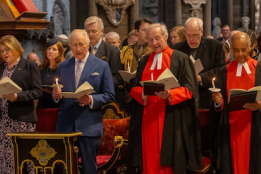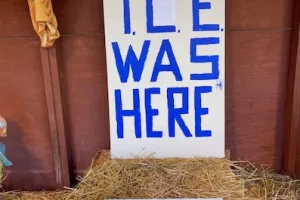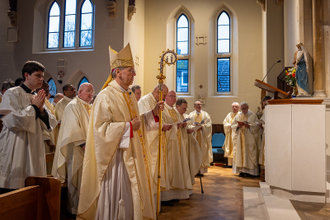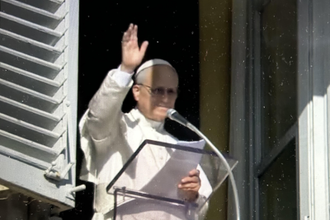The United Nations: Eleanor Roosevelt or Eleanor Rigby?
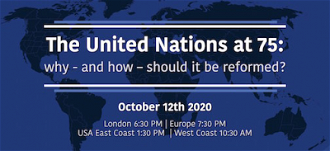
Article 18 of the Universal Declaration of Human Rights says we all have the right to our own beliefs, to have a religion or no religion, or to change it. Yet, as the UN celebrates its 75th birthday, it has a poor track record on defending this fundamental principle.
Human rights activists say UN resolutions often offer platitudes rather than action to stop the continuing persecution of Christians in Pakistan, Egypt and the Middle East; the detention of more than a million Uighurs in China; and mistreatment of Muslims in India and Myanmar. Yet, the UN is hampered because the permanent members of the Security Council (China, Russia, the UK, the USA and France - the P5) can prevent issues being discussed by threatening to use their veto.
The UN emerged from the ruins of World War Two, when the imperative was to maintain international peace and security, and to protect the sovereign equality of nations. In other words, the founding mission was to stop one expansionist nation invading another. What Eleanor Roosevelt and the UN 's architects had not foreseen was that conflicts between nations would give way to civil unrest within nations and the persecution of minorities. Arguably, the treaty of Westfalia of 1648 still takes precedence, guaranteeing the sovereignty of rulers to do what they wish to their own subjects. Hence critics say the lyrics of Eleanor Rigby ("No one was saved") reflect the reality more than the lofty ambitions of Mrs Roosevelt.
There have been several unsuccessful attempts to broaden the Security Council's membership, removing the veto from the P5. Allan Rock, Canada's former UN ambassador, suggests that there may be legal grounds to prevent the P5 from vetoing attempts to stop genocide because such blocking action goes against the spirit of the Universal Declaration of Human Rights and the more recent Responsibility to Protect Doctrine, adopted in the wake of the Rwandan genocide.
In September, The Elders, a group of Nobel laureates and former world leaders, wrote an open letter calling for recognition that "we are at a turning point and we must act decisively to defend and rejuvenate multilateralism." Covid-19 has underlined humanity's shared vulnerability, they argued, citing climate change as another urgent challenge requiring a robust and coordinated global response.
Allan Rock will be discussing how to reform the UN at a webinar on Monday October 12th at 6.30pm (UK time). He will be joined by Aicha Elbasri, a UN staffer who sacrificed her career to blow the whistle of the UN's appeasement of the Islamist regime in Sudan; and Hillel Neuer from the NGO UN Watch. Please click here to register for the webinar: https://us02web.zoom.us/webinar/register/WN_mEvmgp0UReKFtOSd5FK-PA



